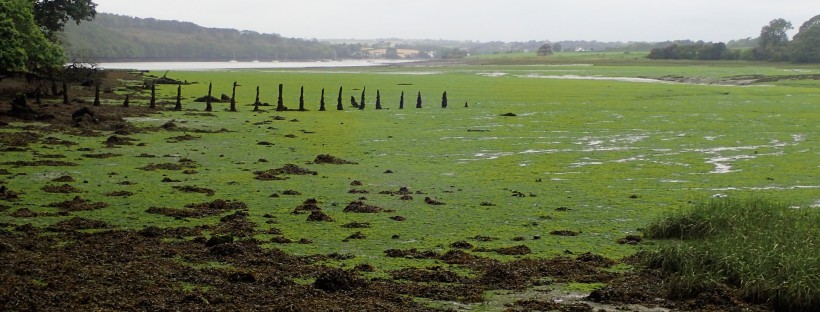By Rosie Evans

The way we think about food and farming is arguably going through the biggest change since the Green Revolution – with the UK’s exit from the EU, Covid-19, and most recently the Russian war on Ukraine having exposed vulnerabilities in our globally connected, ‘just-in-time’ food system. The Common Agricultural Policy has gone, and agroecological methods including wildflower meadows, traditional hedgerow laying, uncultivated field margins and even opportunities for community engagement will be rewarded through new Environmental Land Management schemes in England, whilst this side of the border, the long awaited Agriculture (Wales) Act 2023 seeks to set out new legislation reflecting the challenges and opportunities unique to Wales.
Beekeeping is no exception, with changes in legislation banning the importation of entire honeybee colonies, often subspecies such as the Italian Apis mellifera ligustica. Whilst this has been causing headaches for some large-scale commercial keepers who rely on imports for a productive honey harvest, smaller scale apiculturists and lovers of our native dark honeybee, Apis mellifera mellifera are rejoicing, as their stocks are now potentially at lower risk from unwanted hybridization. This can cause unpredictable and aggressive behaviour, making the bees difficult to handle, and often more likely to swarm.
In contrast, dark honeybees are gentle to handle, generally still on the frames making them easier to inspect, frugal with their winter stores, and said to be better adapted to the Welsh climate. Their darker colour aids the absorption of lower levels of solar radiation during our less predictably warm summers. With the importation laws having become that much more restrictive, we could be looking at a resurgence for locally adapted bees and queen-rearing programmes throughout Wales, like that recently set up by the South Clwyd beekeepers association, who fittingly have their apiary at this year’s conference venue at Llysfasi.
But the outlook hasn’t always been this positive. Following severe decline in the early 1900s, our native bee was thought by many to be extinct, and since then scientists, beekeepers and environmentalists have continued to voice concerns about pollinator decline, citing the use of neonicotinoids, habitat loss, pests such as the varroa destructor mite, and viruses including Isle of Wight disease, and European Foul Brood (EFB). However, wild and managed colonies of the native European dark honeybee endured in remote areas of Wales, Cornwall, Devon and Scotland. Since then, dedicated beekeepers have worked to bring this resilient, locally adapted honeybee back from the brink.
With apiculture having something of a renaissance, the recent boom in beekeeping in a bid to ‘save the bees’ is not without critics, as experts warn against ‘voracious’ honeybees out-competing their wild cousins for forage. However, a 2022 study suggests the balance between managed and wild pollinators might be restored through more sustainable farming approaches, offering solutions to climate change and biodiversity loss, whilst allowing apiculture and commercial beekeeping, which represent important food production and income generation potential, particularly for rural bee farmers, to continue.
Scientists have found that large scale monocultures have a greater impact on wild bee communities than small apiaries, whilst woodland and grassland habitat is associated with the greatest increase in bee richness, particularly for rare above-ground nesting and floral specialist species. This research provides practical insight into how sustainable farming might support increased bee diversity, without compromising crop production and apiculture – a lucrative diversification opportunity for farmers and growers, who can sell a range of bee products, and vital livelihood of established commercial beekeepers. Apiculturists may feel somewhat vindicated by the suggestion that it is landscape biodiversity, particularly the re-introduction of perennial vegetation, that will see the biggest benefit for pollinators, rather than the restriction of apiculture, sometimes mooted as a necessary solution to wild pollinator loss – but it’s also a reminder that nothing in food, farming and ecology is simple!
Luckily, it’s not just larger landowners that can make a difference to pollinator habitat. Another study has shown that home gardens are just as important for pollinators as larger green spaces, with pollinator-friendly management more significant than the size of a garden. With the past few years having brought into sharp relief not just our precarious food system, but the importance of access to green spaces, as well as the long hypothesized connection between beekeeping and improved mental health, this ancient practice is proving as important now as ever. Causes that have once seemed disparate are now coming together under the banner of sustainable food and farming, which seeks to transform our food systems through farming that promotes biodiversity, grassroots initiatives, equitable food networks, and land management practices which work with nature, build climate and food system resilience and prioritise public health and social justice.
It’s with this in mind that I’m so excited to be part of this years’ Wales Real Food and Farming Conference – a platform which allows stakeholders of all stripes, from throughout Wales, to come together to share ideas and practical solutions. On Wednesday 1st November, I’ll be chairing a panel discussion on apiculture and the Welsh dark honeybee. Together the panellists and I will be exploring apiculture as a vital income for commercial honey producers and bee breeders, a diversification opportunity for farmers and smallholders, and a way for beekeepers operating at all scales to play a role in pollination, ecological education, food security, and protect Wales’ unique biodiversity by stewarding this rare, heritage breed.
See you there!
Rosie is a beekeeper and postgraduate student studying for an MSc in Sustainable Food and Natural Resources at Centre for Alternative Technology, Machynlleth.
Prif lun/Main image: Sofia Sosa del Valle, ail lun / second image Rosie Evans.













